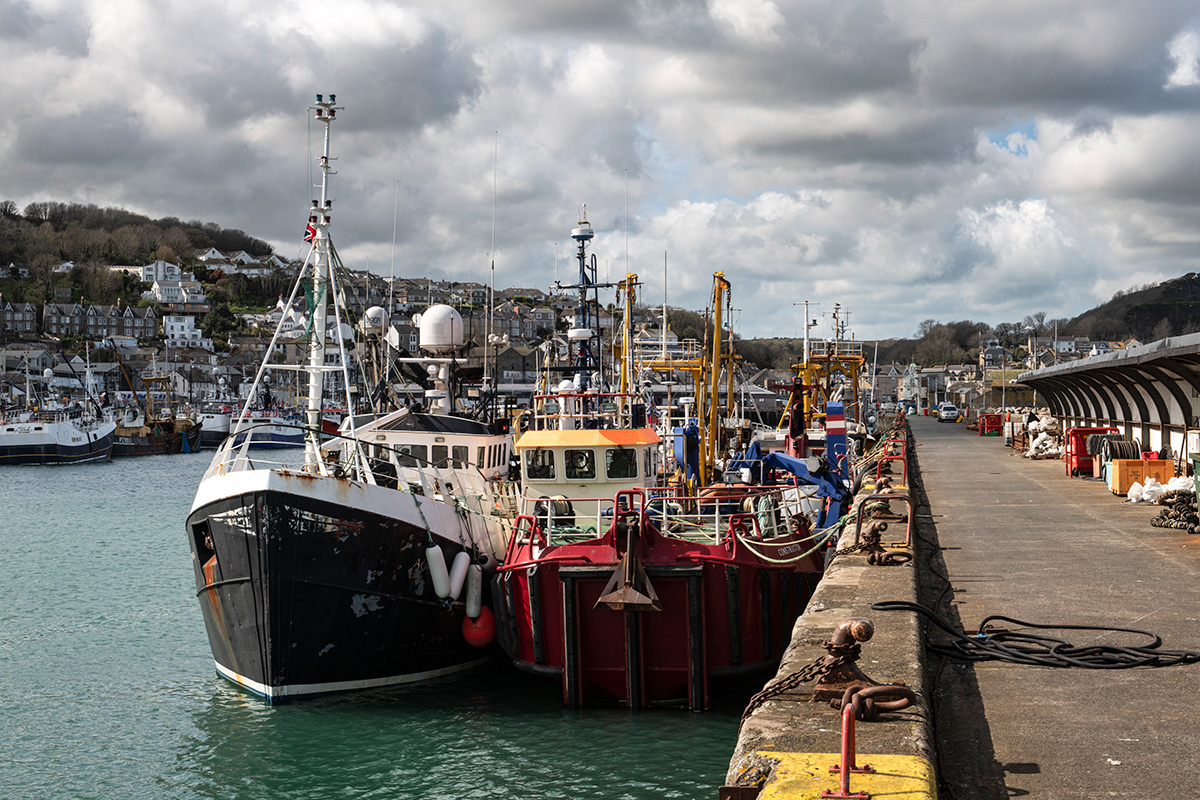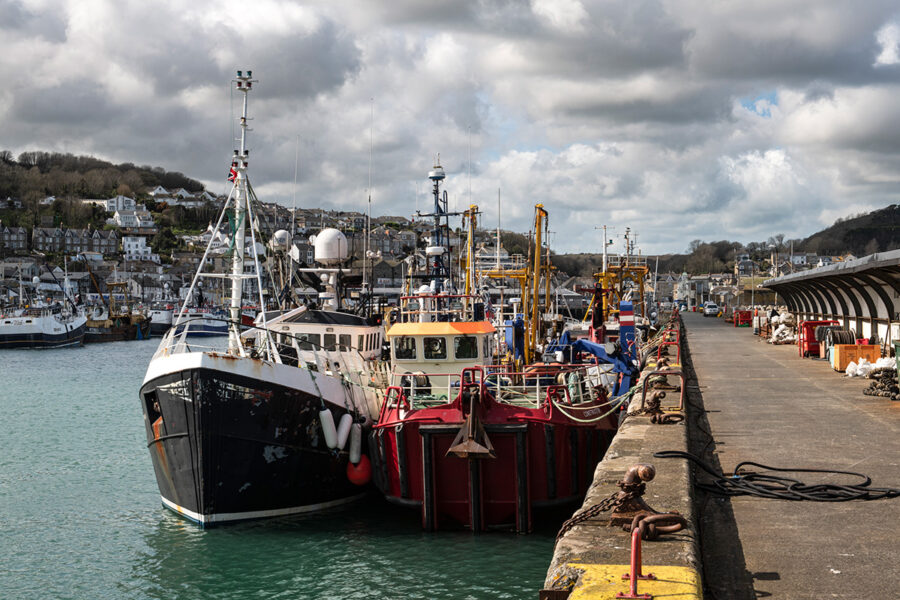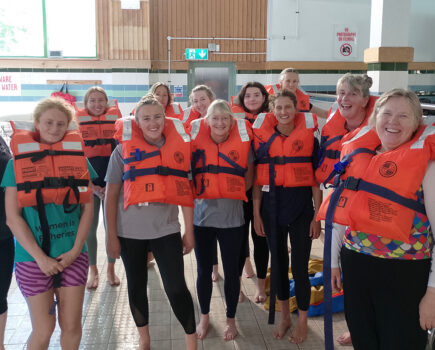NFFO chief executive Mike Cohen lays out his priorities for the next government…
The end of June saw the publication of the last of the major party manifestos. Fishing is an important industry, but one about which most people have little knowledge, so we can hardly be surprised if the concerns of our industry are not the priorities of the nation. Some manifestos have featured fishing and maritime matters explicitly, if mostly briefly. Others have been more notable for what they have left unsaid.
Manifestos are advertising. They are inducements to the general public to vote for the politicians who write them. There are values associated with fishing – hard work; self-reliance; physical bravery – that some of those politicians want to emulate.
It takes more than having your photograph taken clutching a lobster to acquire those traits, but there will always be some on the campaign trail who think it worth the attempt, so the staged photo opportunities around fishing boats and harbours are bound to continue.
Bold and brash promises are freely made in manifestos, but frequently forgotten once power has been won. We can all remember what was said ahead of the Brexit referendum, and we all know how little those promises were worth in its aftermath. The time for real work comes when the campaigning is over, a new parliament is in session and the difficult, painstaking and unglamorous job of studying, managing and developing our fisheries resumes.
If the opinion polls are to be believed, we are likely soon to have a different government. This is a point of change, then: a moment to take stock and consider what could be done better. There are many detailed suggestions that could be made for improving fisheries management, and the NFFO will engage with the new government on all of them at the appropriate time. For now, though, I’d like to propose five important general ideas for politicians to bear in mind when they are developing specific policies.
Food
Above all else, policy-makers need to remember that fishing is about food. It is not a conservation problem. It is not a heritage activity, or a hobby. It is a modern industry that produces food.
People are finally waking up to the fragility of a food supply system that is over-reliant on time-sensitive imports and the rapid, affordable international transport links that make them possible. The British fishing industry provides healthy, affordable, free-range food, with a carbon footprint that compares favourably to any other source of dietary protein.
Furthermore, it is increasingly acknowledged that stability of food supply is fundamental to our national security. This applies as much to the food we export as to the food we eat: everywhere is safer when no one is hungry. Fisheries policy needs to remember what should be its ultimate goal: sustainably maximising production of food from the sea, in the national interest.
Collaboration
One of the few tangible benefits of Brexit was the advent of a new fisheries management system for the UK, free from the overbearing and unsuccessful bureaucracy of the Common Fisheries Policy. This election has been called in the middle of the period in which the UK’s Fisheries Management Plans (FMPs) were being developed. As a result, consultations have been put on hold and meetings have been postponed. The FMP roll-out has paused and we all wait to see if, when, and in what form they may resume.
A new government may feel the need to separate itself from its predecessor in the policy directions that it pursues, but on this point, caution would be sensible. The FMP approach must not be seen as the product of a particular government. It involves collaboration between industry, fisheries managers and scientists, in order to develop evidence- based management measures.
Many of us have been calling for exactly this for years. This fundamental principle is a good one, and the system built upon it should not be discarded wholesale just because a particular party happened to be in office when it was finally implemented.
Space
For centuries, fishing and transportation were the only industries active in the sea. Now many newcomers have entered the scene. Unlike fishing and shipping, many of these industries (wind power, aggregate extraction, conservation) want exclusive access. Fishermen cannot own the waters they fish, and so are steadily being squeezed out of their traditional grounds.
This is all despite the fact that, unlike many of the new uses that people have found for the sea, fishing brings direct benefits to coastal communities. Wind turbines speckle the UK’s east coast and Grimsby is trumpeted as one of the biggest offshore wind operations hubs in the world, yet that town remains one of the poorest in Britain.
Fishing doesn’t just provide jobs on boats. It generates work ashore in harbours, fishmarkets, maintenance facilities and chandleries. It provides a living, working seascape that visitors flock to, supporting tourism- sector businesses. It gives a sense of continuity and proud tradition that binds communities together.
Policies that allow fishing to be squeezed out will devastate communities that are already on the edge in every sense. Conversely, policies to promote sustainable growth in the fishing industry will help those places to thrive.

The local fleet alongside at Newlyn. “Fishing doesn’t just provide jobs on boats. Policies to promote sustainable growth in the fishing industry will help coastal communities to thrive.” (Photo: Tony Fitzsimmons)
People
We hear a lot – rightly – about sustainability when fisheries policy is discussed. What is often ignored is the need for the lives of fishers to be sustainable too.
Fishing is undeniably a dangerous trade, but significant advances have been made in improving safety. At the same time, however, some government initiatives have had the opposite effect. The application of the small work-boat code to fishing vessels was poorly thought through and badly implemented, leading to requirements for vessel modifications that experts condemned as unsafe.
The introduction of medical certification requirements against the advice of the NFFO and others precipitated a mental wellbeing crisis as fishers found their livelihoods under threat, without improving anyone’s safety. The under-10m fleet was exempted from these disastrous regulations only after an extensive campaign from the NFFO, and not before many people wasted money on unnecessary fitness tests, while others were forced out of the industry altogether. The blinkered decision-making process that allowed that debacle to happen in the first place needs fundamental reform.
The costs of doing business as a fisher and the rewards to be obtained from it also need consideration in government policy. A fair price for the products of their labour and energy costs that are not ruinous are essentials for any productive industry and the health, safety and mental wellbeing of those who work in them.
Strategy
Fishing is managed in a multiplicity of different ways by a wide range of different people, for a host of – often mutually contradictory – reasons. Fishing effort is managed internationally by treaty and annual negotiation; it is managed nationally by Defra, and locally by IFCAs. There is stock-based management through FMPs, and spatial management through regional Marine Plans. Fishing grounds are taken for other uses under the national energy strategy, and also by the national conservation strategy, while the Crown Estate leases areas out to any industry but ours for profit.
Fishing is continually disadvantaged by the lack of a holistic plan to guide its development as an industry. We need a national strategy that will tie together the management of existing fisheries and the sustainable development of new ones – a strategy that will open up fishing’s scope to create jobs and support communities in coastal areas. If Britain does this, then
we will finally embrace fully the potential for fishing to contribute to the nation’s food security and economic growth.
Perhaps we may even restore some of the pride we should feel in having such committed, resourceful, and necessary people as fishermen around our coast.
This story was taken from the latest issue of Fishing News. For more up-to-date and in-depth reports on the UK and Irish commercial fishing sector, subscribe to Fishing News here or buy the latest single issue for just £3.30 here.
Sign up to Fishing News’ FREE e-newsletter here.








